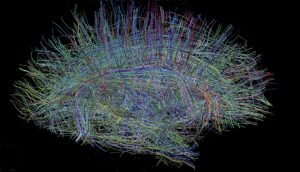The gift of hindsight is what sets humans apart from the rest of the animal kingdom, but it can also be a curse; feelings of regret and worry can reduce happiness, with long-term implications for emotional health. It’s important for students to not let these feelings become familiar, despite the disruption caused by the coronavirus outbreak on university life and education. Partaking in mindfulness exercises such as meditation in social isolation as a complement to self-directed study has been proven to induce measurable brain changes that improve cognition and mood in these difficult times.
‘Yoga citta vritti nirodhah : Yoga is the ending of disturbances of the mind’ according to the Yoga Sutra 1.2.
Brain imaging technology like fMRI (functional magnetic resonance imaging) has allowed researchers to see this primary effect of meditation; even ten minutes a day can produce profound long-term changes. This is most notably seen in neuroplasticity; the ability of the brain to generate and strengthen its internal connectivity in response to learning and new experiences. Just as regular exercise improves muscle memory, meditation strengthens neural connections, creating new “branches”, which ultimately helps prevent brain tissue death with ageing.

Harvard researcher Sara Lazar found that middle-aged meditators exhibit brain functionality similar to that seen in non-meditators in their 20s; gray matter increases in the prefrontal cortex, improving focus and problem-solving. The limbic system of the brain – responsible for behavior, emotions, and survival instincts – is also altered. The hippocampus thickens, which boosts working memory, while activity decreases in the amygdala, downregulating the brain’s fear response and feelings of anxiety. These results were also seen in a study done by Eileen Luders at UCLA, the results of which were published in the 2009 edition of NeuroImage.

Modifications are also seen in the neurochemistry i.e. hormones of the brain. GABA is the primary inhibitory hormone of the nervous system; meditation increases its concentration such that relaxation is induced through reduction of anxiety and stress. An increase in brain serotonin and dopamine (‘the happiness hormone’) also help counteract low mood and depression, while upregulation of BDNF induces further neuroplasticity and resistance to depressive mood. Finally, a reduction in levels of both cortisol and adrenaline decrease the body’s stress response.
Meditation literally changes human neural configurations, potentially being able to treat mental health disorders like depression, anxiety, trauma and chronic pain. It also promotes the neurobiology of optimal health and resilience. As a practice that has stood the test of time and is growing in popularity every year, its clear that mindfulness is not exclusive to ‘health gurus’ and other influencers; its something that can be done in the comfort of your own home to greatly improve mental and cognitive health when times are tough.



